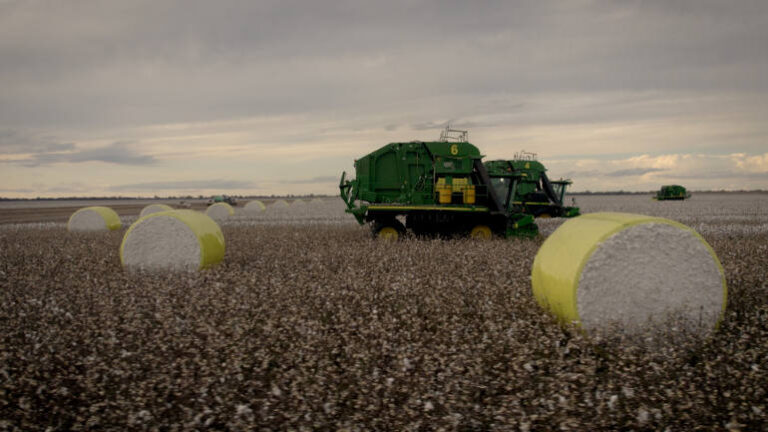Green hydrogen company, Hiringa Energy and Australian agricultural and pastoral enterprise, Sundown Pastoral Co, have partnered to drive forward the next generation of decarbonised farming and agriculture in the northern NSW region after being awarded $35.8 million in funding from the NSW Government. Together, the two industry leaders will enhance the capacity of the world’s first Good Earth Cotton farm to produce climate-positive and traceable cotton.
The Good Earth Green Hydrogen and Ammonia (GEGHA) project involves the construction and operation of a renewable ammonia and green hydrogen production facility near Moree. The project will help farmers reduce the emissions associated with their outputs and enable them to meet consumer demand for low-carbon and sustainable produce in increasingly carbon-conscious domestic and export markets.
The GEGHA project has been awarded $35.8 million in funding from the NSW Government’s Hydrogen Hubs Initiative, validating GEGHA’s position in the future of Australia’s thriving green hydrogen industry.
“Our aim is to provide a more resilient, locally produced and lower emissions supply of key inputs — to farm production (fertiliser) and transport to market (fuel). The project will prove the technical and commercial model for decarbonised agricultural systems and sets a precedent for the new frontier of farming and heavy transport industries — where net-zero and commercial viability are inextricably linked,” says Cathy Clennett, Head of Commercial and Corporate Development at Hiringa Energy.

The GEGHA project will see the installation of the 27 MW Wathagar Solar Farm, which will produce roughly 45,000 MWh of energy per annum — the equivalent to powering over 4,000 homes — and enough hydrogen to displace more than 1.4 million litres of imported diesel.
“As we grow our footprint in Australia, we’re proud of our joint venture which will provide Sundown Pastoral and other regional customers with green ammonia to reduce their emissions related to fertiliser use and hydrogen as a replacement to diesel and LPG, both on-farm and on-road. Not only will GEGHA contribute to the sustainability of the region’s primary business, it will also drive employment growth by targeting the use of local staff and contractors,” explains David Heard, Hiringa’s Executive Director Australia.
With its dedicated focus on the agricultural fertiliser market, the GEGHA project will simultaneously improve the reliability of fertiliser supply to local agricultural production while also decarbonising it — by manufacturing fertiliser close to the point of use and eliminating the carbon-intensive use of methane feedstock, and using renewable energy to drive the process.
“We’re proud to be leading the industry by example. Our project will contribute to the sustainability of primary production and business in the region, providing a platform for the low-carbon transition, and a foundation for economic stability and opportunity. Australia’s hydrogen industry is at an inflection point, which is forecast to generate $50 billion in additional GDP, and create more than 26,000 direct and indirect jobs by 2050,” adds Heard.
The GEGHA project will result in direct abatement of over 17,000t CO2 equivalent per annum. This is in addition to substantial indirect abatement and safety benefits associated with reduced shipping and heavy vehicle emissions required to transport fertiliser and diesel.
The project will demonstrate commercial viability of low-carbon fertiliser production based on the world’s first Good Earth Cotton farm in Moree, to be followed by medium-scale expansion across the state’s agricultural sector.
“GEGHA’s production of anhydrous ammonia comes at an important time for the Australian agricultural sector, as global consumers start to demand sustainable food and fibre. Exemplifying how Australia can decouple agriculture from fossil fuel driven fertiliser production, we’ll also provide a credible pathway for heavy trucking to transition to low emission transport using hydrogen and deliver on-farm emissions reduction for the agricultural sector with alternatives to fossil fuels such as LPG and diesel. We’re thrilled to be working with Hiringa to fuel the next generation of agriculture systems in Australia,” concludes David Statham, Owner, Sundown Pastoral Co.






